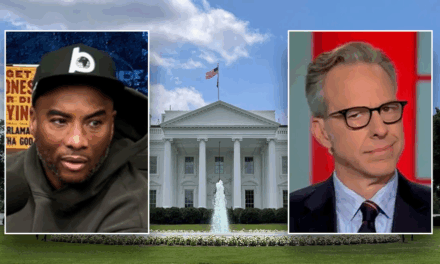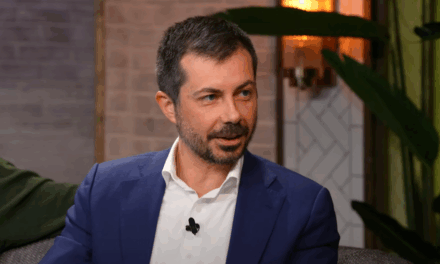In a recent episode that resonated with audiences, “Saturday Night Live” (SNL) delivered a sharp critique of former President Donald Trump, humorously suggesting that he has been in the Oval Office for “100 years.” This comedic take sparked laughter and reflection among viewers on Trump’s time in power and his occasionally bizarre ambitions.
The sketch opened with the announcer’s voice echoing through the studio, proclaiming a surreal timeline of Donald Trump’s presidency. It cleverly exaggerated the length of his term to highlight not only his powerful grip on the political landscape but also the often chaotic nature of his administration.
SNL’s comedic approach has always reveled in political satire, and this episode was no exception. By distorting timelines and adding absurdity, the cast effectively highlighted the consistent stream of executive orders that characterized Trump’s presidency.
Among the parody’s main targets were Trump’s executive orders, which were introduced with tongue-in-cheek exaggeration. The sketch showcased an array of nonsensical and over-the-top orders that were depicted in the style of real ones, poking fun at Trump’s tendency to bypass traditional legislative processes. This embellishment served not only to entertain but also to point out the controversial nature of his decision-making.
The sketch’s depiction of Trump also included humorous references to his desire for grandeur, including whimsical aspirations to become “Pope Trump.” This notion was crafted to draw parallels between his zealous ambitions and the high-profile ladder he had been climbing during his time in the White House.
As the skit transitioned, it featured Trump clad in papal-like attire, surrounded by a gaggle of enthusiastic supporters who claimed he was destined for the papacy. This playful portrayal directly mirrored the fervent nature of Trump’s base, showing that the admiration he received could sometimes veer into idol worship.
One powerful moment during the skit was when a cast member, playing Trump, declared with all the gravitas a Pope would embody: “I will bring the holy word directly to the people!” This line was met with roaring laughter from the audience, encapsulating the absurdity of a former president intertwining political ambitions with religious authority.
The audience’s reactions underscored the show’s effectiveness in walking the line between humor and commentary. By utilizing ridiculous scenarios, SNL managed to evoke a sense of reflection amidst the laughter, inviting viewers to consider the implications of a leader whose actions could be perceived as messianic in nature.
As the sketch reached its climax, Trump, portrayed by a seasoned cast member, delivered an impassioned and comical “sermon” about making America great again, echoing themes that defined his campaign. The performance was laced with faux-scriptural references, effectively capturing the spirit of Trump’s speechifying style while mocking its content.
Moreover, this segment mirrored real historical events, drawing parallels to moments when Trump attempted to align himself with religious figures or groups, further emphasizing his desire for a legacy that transcended political norms.
In recent years, SNL has emerged as a crucial platform for social commentary, particularly in times of political turbulence. Its ability to fuse humor with poignant societal reflections brings to the forefront important conversations that would otherwise remain muted. The decision to portray Trump’s tenure as a hundred years was not just a comedic choice but rather a commentary on the feeling many Americans had regarding the endless cycle of headlines and controversies during his presidency.
SNL’s take on Trump’s political maneuvers aligns with growing sentiments from critics who argue that his administration felt much longer than its four-year term due to the barrage of news and executive orders that captivated the nation. Each week brought new developments that kept viewers enthralled, and SNL has recognized that these rapid-fire events are fodder for humor and scrutiny alike.
Trump’s penchant for issuing executive orders has been a focal point in many discussions surrounding his presidency. Critics have often pointed out that many of these orders lacked the depth of bipartisan support or thorough review. The skit played on this sentiment by presenting absurd scenarios of executive orders designed merely for spectacle rather than substance.
For instance, one of the more outrageous “orders” in the skit proposed the immediate replacement of all national symbols with a golden Trump statue at the center of Washington, D.C. Such exaggeration resonated well with the audience as it encapsulated the perception of vanity that often accompanied Trump’s presidency.
As the SNL episode continued, it showcased a series of faux announcements, which satirically reported on executive decisions that played into the absurd, such as individual state laws being enforced by singing troops dressed as medieval knights. This particular scene brilliantly illustrated how Trump’s unpredictable methods seemed almost medieval in their disregard for precedent and traditional governmental processes.
The creators behind SNL have always walked a fine line with their political humor, aiming to find absurdity in power dynamics while also holding leaders accountable. As audiences continue to grapple with the memory of Trump’s presidency, skits like this serve as a reminder of the past controversies while igniting discussions about what more lies ahead in US politics.
The episode’s rich comedic storytelling left viewers with plenty to consider long after the credits rolled. In depicting Trump’s ambitions through the guise of a would-be pope, SNL successfully challenged the audience to confront the often distorted realities of contemporary politics, offering both laughter and critical reflection.
This latest endeavor from SNL not only highlights the team’s dedication to political satire but also showcases the cultural commentary that audiences have come to expect from the show. It reinforces the notion that comedy can be a powerful tool in illuminating the nuances of leadership while confronting the sometimes absurd manifestations of political ambition.
As the political landscape continues to evolve, it is clear that shows like SNL will remain at the forefront of tackling complex themes in a format that resonates with wide audiences. Their approach showcases that while political satire can prompt laughter, it also serves a greater purpose in encouraging essential dialogue about governance, power, and the human condition.
Ultimately, SNL’s portrayal of Trump’s long and eventful presidency through comedic elements serves as a satirical critique, but it also echoes a genuine concern about the future of leadership in America. As the nation progresses, the importance of such discussions will take on new significance in the face of evolving political realities and public sentiment.
































